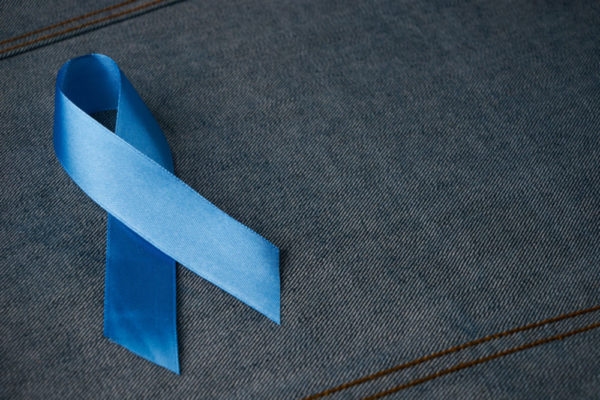Testicular Cancer Self Checks Are Important

4/16/2018
It’s Testicular Cancer Awareness Month.
Everyone knows that women are recommended to perform self-evaluations for breast cancer, but most men are not aware that they should be checking themselves for signs of testicular cancer. We’re not talking about that quick adjustment that men seem to do at the most inappropriate times. Instead, an actual self-evaluation could help lead to the discovery of something more serious, and in some cases, provide enough time to take action. Since April is Testicular Cancer Awareness Month, let’s review the signs, symptoms, and risk factors to consult while performing your own self-evaluation.
Testicular cancer is the leading cancer in men ages 15 to 44, and in this group, more men will die of testicular cancer than women of breast cancer. Every hour a man is diagnosed with testicular cancer, and to put this into perspective even more, 1 out of 270 men will be diagnosed with testicular cancer in their lifetime. The ray of hope in this situation is that, if detected early, testicular cancer is over 95% curable.
Testicular cancer is not common and with treatment being so successful, the risk of dying from this cancer is very low: about 1 in 5,000. Testicular cancer is highly curable when detected early, and 95% of patients with testicular cancer are alive after a five-year period. However, about half of men with testicular cancer do not seek treatment until the cancer has spread beyond the testicles to other locations in the body.
The cause of testicular cancer is unknown. Certain risk factors may increase your chances of developing the cancer. Some of the risk factors that could lead to testicular cancer include undescended testicles, urological birth defects, a history of testicular cancer in your family, or race. White males have a significantly higher risk of developing testicular cancer than black males, but the reason is unknown.
Identifying the signs of testicular cancer
Some signs and symptoms of testicular cancer can be detected at home through self-evaluation. If you discover any signs or symptoms, seek medical attention immediately. More often than not, the first symptom of testicular cancer is a lump or swelling of the testicle. (It’s important to note that it is normal for one testicle to be a little larger than the other, and for one to hang lower than the other.) Some testicular tumors can be painful, but most of the time they are not. Men with testicular cancer can also have a feeling of heaviness or aching in the lower abdomen or scrotum. In rare cases, germ cell tumors can make breasts grow or become sore. This occurs because certain types of germ cell tumors secrete high levels of a hormone called human chorionic gonadotropin (HCG), which stimulates breast growth. Some Leydig cell tumors can produce estrogens (female sex hormones), which can cause breast growth or loss of sexual desire. Early puberty in boys can also be a sign that something may not be right. Some Leydig cell tumors can make androgens (male sex hormones). Androgen-producing tumors may not cause any one specific symptom in men, but in boys they can cause signs of puberty at an abnormal early age.
In some cases, if the cancer has spread to other parts of the body, some men may still not experience any sort of symptom right away. But some men might experience a few of these symptoms of advanced testicular cancers. Lower back pain is a signal that the cancer has spread to the lymph nodes. Shortness of breath, chest pain, or a cough may develop from the cancer spreading to the lungs. Belly pain can be caused by either enlarged lymph nodes or a result of the cancer spreading to the liver. Chronic headaches or confusion can be a sign that the cancer has spread to the brain.
A number of non-cancerous conditions, like a testicle-related injury or inflammation can cause symptoms similar to those of testicular cancer. Inflammation of the testicle and inflammation of the epididymis can cause swelling and pain of the testicle. Both of these also can be caused by viral or bacterial infections.
Some men with testicular cancer will never experience symptoms at all and their cancer will be found through other medical testing. This is why self-evaluations are so important, because they can lead to early detection and could more than likely be lifesaving. So keep in mind the importance of checking yourself on a more routine basis.
